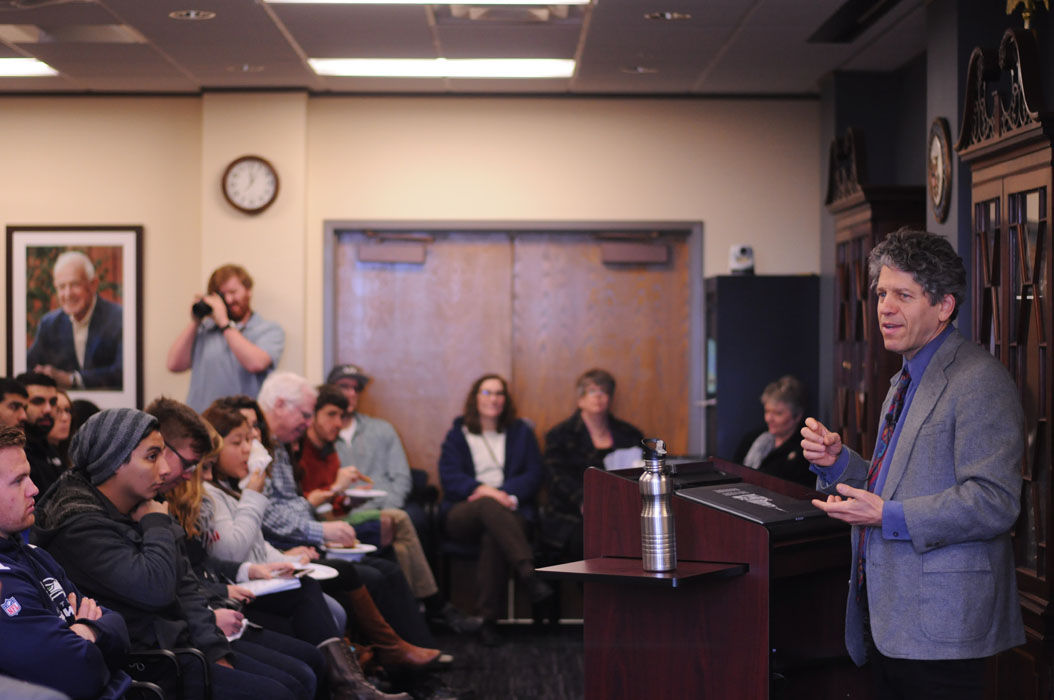Foley talk: student votes
Paul Loeb gives a lecture on why college students aren’t voting as part of the Coffee and Politics series in Bryan Hall
March 2, 2016
An author and researcher of citizen responsibility spoke Tuesday about issues that are preventing students from getting involved in voting and how they can be resolved.
Paul Loeb, founder of the Campus Election Engagement Project, spoke about citizens’ power to make a difference and how schools should be using institutional resources for students to be knowledgeable of the voting process as part of the Foley Institute’s Coffee and Politics series.
He discussed what is known as the “perfect standard,” something he said most college students can relate to without even knowing.
The perfect standard refers to when someone feels like no matter how much they know about a certain candidate or issue, it is not enough to actually participate or make an educated vote, Loeb said.
“No matter how much you know, it’s not enough to get involved,” he said.
Part of Loeb’s project is to encourage schools to take more responsibility in getting their students involved in upcoming elections.
Loeb said this includes giving them ways to register for voting, campaigning on campus, and giving them convenient access to polls when the time comes.
Loeb offered two reasons why students have not participated in elections in the past, one of which is practical and structural. He said they do not know where to vote or when to be there and some have not registered or do not have means of transportation, arguing that polls are held too far away.
The other reason students are not quick to vote is they feel like they do not know enough or do not favor a candidate, Loeb said.
The solution Loeb and his project offer is getting students to use dialogue. Instead of using social media as an outlet for name-calling and bad-mouthing candidates, it should be a place to get people with like-minded opinions to encourage others to get involved, he said.
Loeb’s hope is that these interactions will lead to more in-person conversations. He said it is a ripple effect that will eventually make more students on campus aware of available candidates and the options they have when elections approach.
Loeb and the Campus Election Engagement Project do not want college students to feel uniformed or not important for the next round of elections.
Through their website, students are given access to material that will help them make an educated choice they can feel good about, Loeb said.
Reporting by Shannon Steffen






















